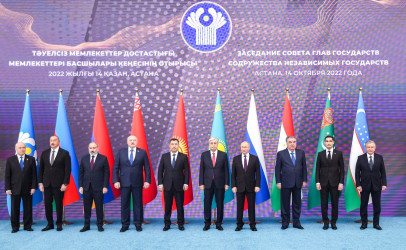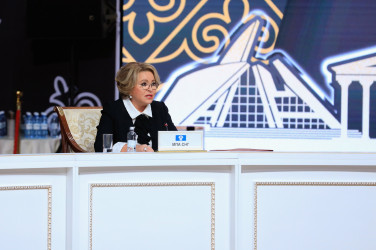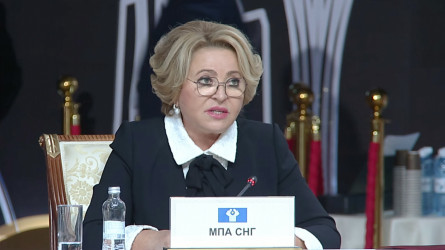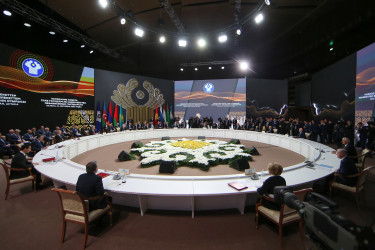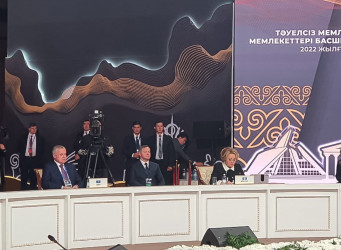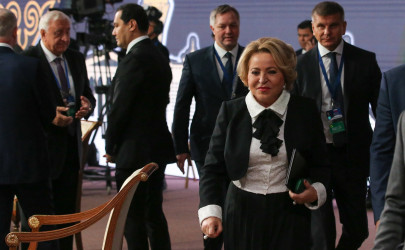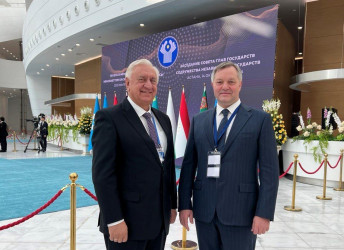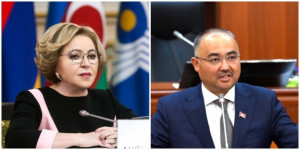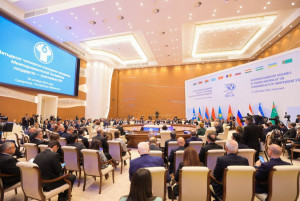Valentina Matvienko Addressed Meeting of CIS Heads of State in Astana
14 October 2022
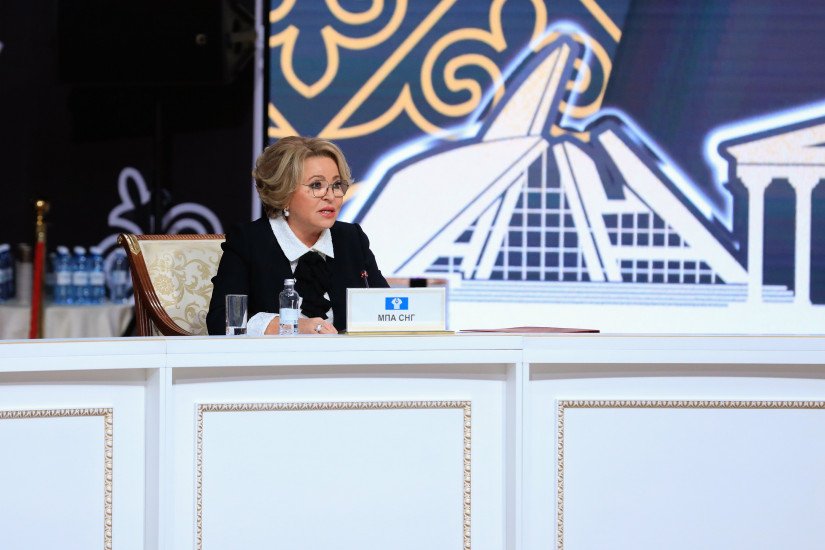
Chairperson of the IPA CIS Council, Speaker of the Federation Council of the Federal Assembly of the Russian Federation Valentina Matvienko spoke about the role of the IPA CIS in the development of Commonwealth of Independent States at an expended meeting of the Council of CIS Heads of State, which took place in Astana today.
The meeting was attended by President of the Azerbaijan Republic Ilham Aliyev, Prime Minister of the Republic of Armenia Nikol Pashinyan, President of the Republic of Belarus Alexander Lukashenko, President of the Republic of Kazakhstan Kassym-Jomart Tokayev, President of the Kyrgyz Republic Sadyr Japarov, President of the Republic of Tajikistan Emomali Rahmon, President of the Republic of Uzbekistan Shavkat Mirziyoyev, President of Turkmenistan Serdar Berdimuhamedov, as well as Chairman of the Executive Committee – CIS Executive Secretary Sergey Lebedev and Secretary General of the IPA CIS Council Dmitriy Kobitskiy.
Valentina Matvienko recalled that this year the Assembly celebrated its 30th anniversary. The Speaker of the Federation Council noted the work of the CIS MPs to harmonize and develop legal frameworks that are aimed at improving living standards and promoting multifaceted cooperation between countries. She also noted the development of relations with MPs of other foreign countries and international organizations. The Chairperson of the IPA CIS Council stressed that the Assembly signed more than 70 documents on cooperation with such organizations. Valentina Matvienko also spoke about the major events that take place under the auspices of the IPA CIS with the participation of representatives of many foreign countries. She said that the upcoming IPA CIS plenary session in Samarkand would focus on legislative support for electoral processes. She also recalled the special institution established within the framework of the Assembly to provide methodological support to electoral processes, as well as the Convention, which sets out universal criteria for assessing elections.


